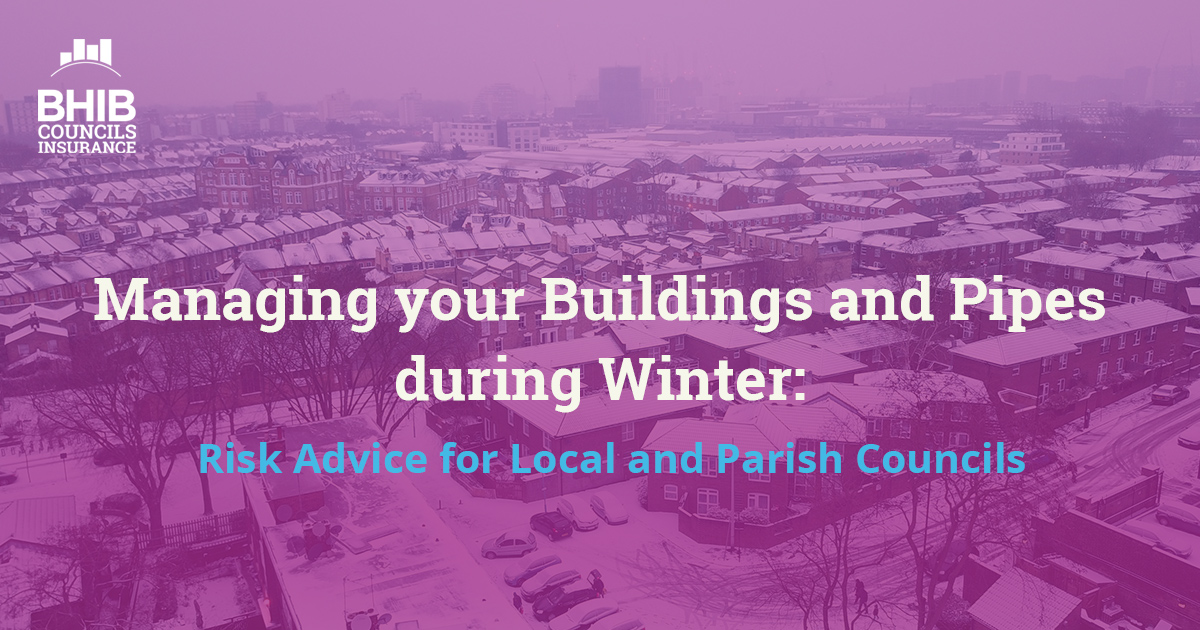The winter months always pose unique challenges from a risk management perspective, and with the ongoing COVID-19 pandemic, this year promises to be particularly challenging.
Below we have provided some quick and easily digestible risk management advice for councils as we approach the colder, darker winter months. If you require any further and more specific advice, you can get in touch via our Contact Us page.
Protecting buildings in winter
If your buildings are going to be unoccupied for long periods over the winter because of coronavirus, you need to take extra care to protect them against the elements.
Here are some tips to help protect your buildings from the risk of burst pipes in the colder weather:
- Insulate all pipes in unheated areas like sheds, garages, outbuildings etc.
- If you have thermostatically-controlled heating systems in your buildings, these should be left on permanently on a minimum temperature setting of 4°C
- Turn off the water supplies and drain the pipes in any building that will not be used over the winter months
- Make sure you repair any dripping taps – usually it is as simple as replacing a washer
What to do if you have a burst pipe:
If the heating system stops working or makes a loud banging noise then it could be a sign that a pipe is freezing. If that happens you should:
- Turn off the water supply at the main stop tap
- Contact an approved plumbing and heating engineer straight away
- If your pipes freeze over, do not use a naked flame to try and thaw them
Buildings such as pavilions, changing rooms and other outbuildings that are not used during autumn and winter are particularly susceptible to weather damage as it can be easy to forget about them. We recommend you arrange for these buildings to be checked regularly on a weekly basis.
Minimising risk from ice and snow during winter
Snow and ice poses several risks to members of the public, council employees and volunteers. To minimise these risks we recommend councils consider the following advice:
- Carry out a written risk assessment of the dangers and keep this on council files.
- Take all reasonable steps to ensure the safety of the public, employees and volunteers.
- All council employees and volunteers should be made aware that the clearance of snow and ice could be an ongoing task throughout the winter months, receive adequate training and be provided with suitable protective clothing.
- Council’s should communicate their plans regarding the clearance of snow and ice to the community. This could be via a newsletter, noticeboard, website, social media or published minutes of a meeting. Any changes to pre-announced plans should also be communicated clearly and effectively.
- Council’s should exercise reasonable care when implementing activities to clear snow or ice from paths and roads, and should take care when deciding where to move it to – making sure drains, entrances and side roads are not obstructed.
- When clearing a pathway, clear the middle of the path first so that there is a safe surface to walk on.
- Do not use water to clear the area once snow and ice has been cleared as this can cause black ice. Use salt or grit on treated areas instead.
Specialist Insurance for Local Councils
We are passionate about delivering tailored insurance solutions for Local Councils.





